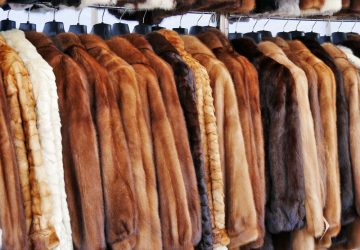Between Consumer Reports magazine’s fearmongering about its own holiday party snacks and Marion Nestle suggesting we deprive certain businesses of constitutional rights, it's already been a busy week here at the Center for Consumer Freedom. With all this nonsense bubbling up from various food control-freaks, we haven't had time to update you on a couple key stories.
First, the San Francisco Happy Meal ban is metastasizing nationally . The latest cancer site? Northern Wisconsin:
If one Superior City Councilor has his way, Happy Meals won't be so happy anymore.
Superior City Councilor Greg Mertzig wants the city to follow in the foot steps of San Francisco and put an outright ban on toys included in fast food meals that don't meet certain requirements.
The ordinance which is set for a preliminary vote next Tuesday says toys will not be included with meals unless the caloric intake is below 600, fat content not to exceed ten percent, sodium levels less than 500 milligrams and zero trans fat.
The town thankfully voted down the prohibition. (Mertzig was the only councilor voting to pass the bill out of committee.) But henceforth, tut-tutting state politicians can cite San Francisco as a precedent for this sort of absurd nannying. All it takes at the local level is a handful of legislators who want to feel like they "did something" about obesity.
Wisconsin may have done the right thing. But how long, we wonder, until the finger-wagging New York Mayor Michael Bloomberg takes up the cause?
Speaking of Bloomberg, another prohibitionist proposal is being considered right in his backyard.
Anyone 19 or younger would be banned from buying non-alcoholic energy drinks under a proposed law now before the Suffolk County [Long Island] Legislature.
The proposed ban would be the first of its kind in the nation, according to bill sponsor, county legislator Lynne Nowick …
Nowick's ban would target energy drinks with more than 80 milligrams of caffeine per serving, according to the legislation formally filed Tuesday.
According to a handy Mayo Clinic analysis, a responsible 18-year-old could still purchase certain standard-sized energy drinks, but other brands would be prohibited. (That same 18-year-old could also sign up for the Army and risk dying for his country. But we digress.)
The catalyst here was the recent hysteria over one heavily caffeinated alcoholic beverage. But that episode seems to have broken the logjam for legislators and nutritionists itching to get rid of energy drinks altogether, including in Kentucky where a similar bill was recently introduced. The Center for Science in the Public Interest has been targeting energy drinks for at least four years. All this despite the fact that coffee actually has far more caffeine than most energy drinks. You can easily walk into a popular coffee shop and walk out with a brew that contains 200-300 mg of caffeine.
Unfortunately, the energy drink ban has seven other co-sponsors and bipartisan support. But regardless of whether it passes, precedents matter. Food cops often make the argument, "We've already done X, so why not do Y?" It's the slippery slope to the extinction of personal responsibility.



